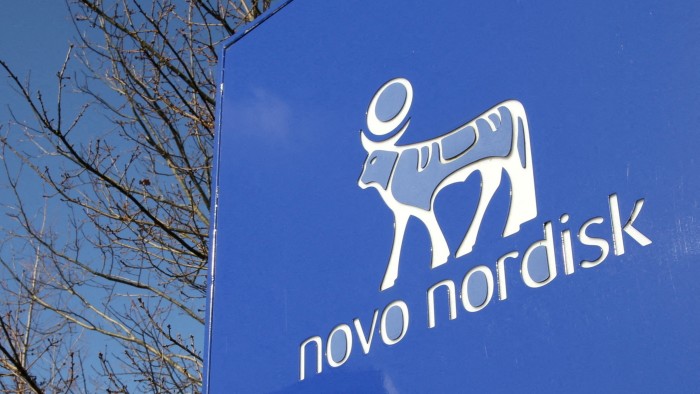Share this @internewscast.com
Novo Nordisk, a prominent European pharmaceutical company, faced a significant setback on Monday as its shares plummeted following disappointing results in late-stage trials of a diabetes medication aimed at treating Alzheimer’s disease.
The company disclosed that two extensive clinical trials, which evaluated the efficacy of semaglutide in treating early stages of Alzheimer’s, failed to demonstrate any meaningful improvement in the condition of the thousands of participants involved.
Despite enrolling nearly 4,000 patients, the trials did not yield a delay in the progression of Alzheimer’s disease, although there were noted improvements in specific biomarkers related to the disease, according to Novo Nordisk.
As a result, the company’s stock tumbled over 10 percent on Monday, before partially rebounding, ultimately valuing the company at nearly 1.3 trillion Danish kroner ($195 billion).
The research sought to determine if Rybelsus, an established diabetes medication containing semaglutide—the same active ingredient found in Novo’s weight-loss and diabetes treatments Wegovy and Ozempic—could decrease cognitive decline rates by at least 20 percent in Alzheimer’s patients.
The trial tested whether Novo’s older diabetes drug Rybelsus — which contains semaglutide, the same active ingredient as weight-loss and diabetes drugs Wegovy and Ozempic — could lower the rate of cognitive decline in patients by at least 20 per cent.
All of the participants in the trial, which included patients from almost 40 countries, already had a build-up of amyloid protein on their brain scans, an early hallmark of Alzheimer’s.

“Based on the significant unmet need in Alzheimer’s disease, as well as a number of indicative data points, we felt we had a responsibility to explore semaglutide’s potential, despite a low likelihood of success,” said Martin Holst Lange, chief scientific officer and executive vice-president of research and development at Novo Nordisk.
Novo had hoped that semaglutide could be used to treat some of the 55mn people with dementia. But the group had always described the trials as a “lottery ticket”. Data from the trials failed to “confirm [the] superiority of semaglutide versus placebo”, the company said.
Novo has endured a tumultuous year, which has led to a boardroom clearout, while its share price has fallen about 60 per cent in the past 12 months.
Investors have questioned its strategy and raised concerns that it does not have a pipeline of potential blockbuster next-generation weight-loss drugs.
The Copenhagen-based group has fallen behind rival Eli Lilly, which last week became the first pharma company to reach a $1tn market capitalisation in the crucial US market.
Novo’s troubles have led to the ousting of Lars Fruergaard Jørgensen as chief executive in May. His replacement Mike Doustdar has been tasked with reviving the company.
Doustdar, whose bold approach has divided shareholders, this month lost a bruising takeover battle for Metsera, an obesity-focused biotech that will be bought by Pfizer instead.
Former Novo chief executive Lars Rebien Sørensen was appointed chair of its board in October, after the previous chair and six other directors stood down.
Evan Seigerman, senior research analyst at BMO Capital Markets, said that while the results added to Novo’s struggles and represented a setback for Alzheimer’s treatment, “future study may still be necessary to further understand how results may differ with pre-symptomatic treatment over a longer time horizon”.
More data from the Alzheimer’s trials will be presented at a scientific conference next month with full data expected next year.
Ivan Koychev, associate professor of neuropsychiatry at Imperial College London, said the results were “not entirely surprising”. While people exposed to GLP-1s in the long term have shown a lower risk of ever developing dementia, the results suggest that the class of drugs has greater influence on the “earliest pathogenic processes” rather than on people who already have the disease, he said.
The results appear to follow the established trend in Alzheimer’s drug development, where preventing further decline is not enough to restore complex neural networks that have already deteriorated.
Howard Fillit, chief science officer of the Alzheimer’s Drug Discovery Foundation, said the improved Alzheimer’s-related biomarkers found by the study may “suggest a path forward for semaglutide” in combination with other forms of treatment.










